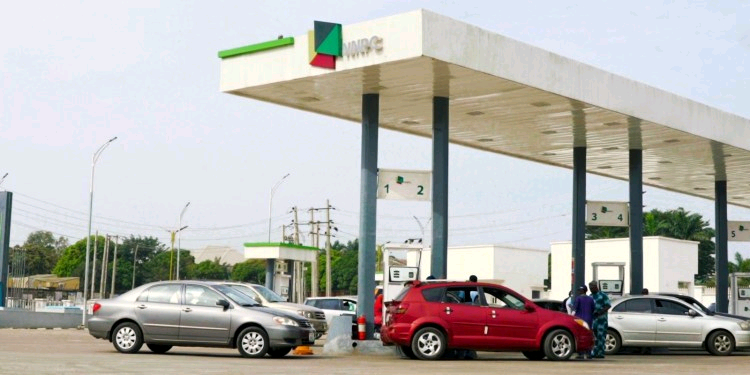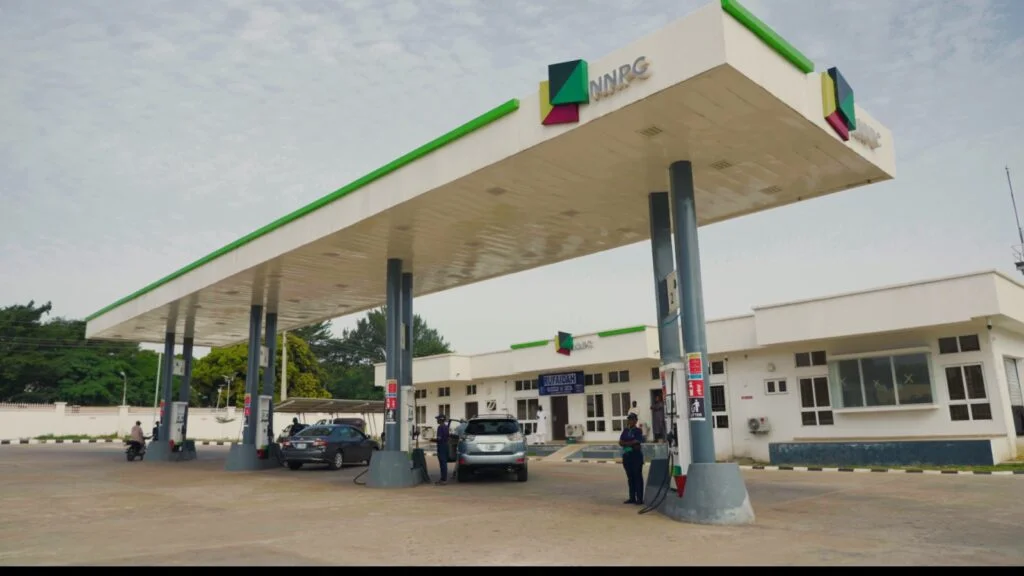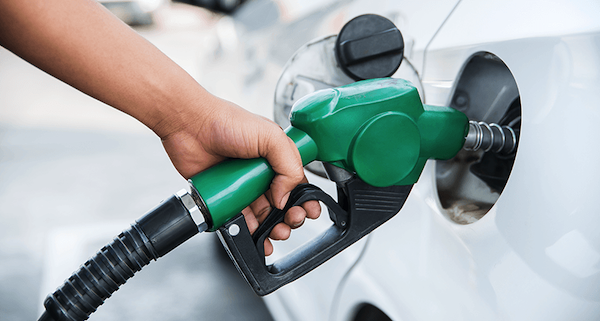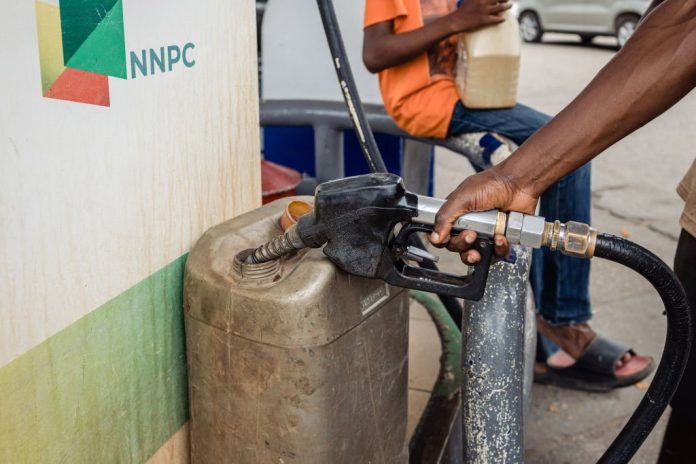- NNPCL Raises Petrol Price Again, Fixing N1,060 Per Litre Amid Economic Hardship. The petrol price in Abuja has been raised to N1,060 per liter.
- This increase comes just three weeks after a previous hike.
- In Lagos, the price has risen from N998 to N1,025 per liter.
- Experts caution that inflation may lead to further price increases.
- Dangote Refinery faces criticism for continuing petrol imports despite local production capabilities.
- Analysts express confusion over the price hikes given the recent drop in international crude oil prices.
Barely three weeks after raising the price of Premium Motor Spirit, Nigerians were outraged when the Nigerian National Petroleum Company Limited on Tuesday adjusted the pump prices of the commodity, as oil marketers foresee further price hikes in the short term.
The national oil firm raised the retail price of petrol in Abuja to N1,060 from N1,030 per litre, one of our correspondents observed across multiple NNPCL stations in the Federal Capital Territory on Tuesday.

In Lagos, it was confirmed that NNPCL stations increased the unit price of the commodity from N998 to N1,025 per litre, which received widespread criticisms from the Organised Private Sector, Civil Society Organisations and Nigerians in general.
Experts and key followers of the Nigerian oil and gas sector fear inflation in the country may further skyrocket following the latest hike, after it rose to a 28-year high (34.2 per cent) in June, which could compound the hardship in the country.
This came as the Dangote Petroleum Refinery faulted the continued importation of petrol by oil marketers and NNPCL despite the fact that the commodity was produced in the country by the $20bn Lekki-based plant.
The President of Dangote Group, Alhaji Aliko Dangote, raised the concern in Abuja on Tuesday after he was summoned by President Bola Tinubu, alongside the Minister of Finance, Wale Edun, and the Group Chief Executive Officer of NNPCL, Mele Kyari.
“I have a refinery, I’m not in retail business. If I’m in retail business then you can hold me responsible. But what I’m saying is that the retailers should please come forward and pick (petrol). If they don’t come forward and pick, what do you want me to do? So, I am expecting either the NNPCL or the marketers to stop importing; they should come and pick because we have what they need. And as they move, I will be pumping,”
Dangote stated after the meeting with the President in Abuja.
PMS price hike
The new petrol price in Abuja is an increase of N30 from the old price, while in Lagos it is an increase of N27.
This adjustment also marks the third price change between September and October 2024 and is part of the government’s deregulation policy, which allows prices to fluctuate based on supply and demand dynamics.

At its mega station located along Wuse Zone 4, the price of the commodity was sold at N1,060 per litre. But at its station located at Olusegun Obasanjo Way, Central Area, the product still sold at N1,030 with commuters scrambling to join the long queue.
The fresh increase followed the October 9, 2024 hike from N897 to N1,030. Also, on September 2, 2024, it was increased by the NNPCL. The retail company had hiked the price per litre of petrol from N617 to N897, sparking nationwide outrage.
Since the “subsidy is gone” presidential declaration in May 2023, the NNPCL has gradually increased the pump prices of petrol from N184 in Lagos to N1,025.
Though there has not been any official statement from the NNPCL on the latest increase in petrol prices – just like the oil firm did during their last hike earlier this month – the NNPCL hinted at a fresh price increase when it began loading its first batch of petrol from the Dangote Refinery in mid-September.
Then, it announced that it got petrol at N898 per litre from the private refinery and that it would sell it for N950 per litre in Lagos and N1,019 in Borno.
Dangote Refinery instantly denied selling petrol to the NNPCL at N898 but the latter challenged the refinery to release the price it sold the product.
Analysts expressed confusion over the latest hike, especially since crude oil prices in the international market had dropped approximately eight per cent to $72 per barrel from $78 per barrel.
“The situation is a pathetic one, and we hope the President will call us to negotiate the N100bn offer we have requested to stabilise the price of petrol. It will give us a guarantee of alternative sourcing of products,”
Petroleum Retail Outlets Owners Association of Nigeria President Billy Gillis-Harry said.
National Publicity Secretary Joseph Obele clarified that members of the association had been buying PMS from the NNPC at the rate of N1,040 per litre before the oil company’s price hike on Tuesday.
He added that the NNPC was yet to issue a memo announcing the price increase, nor has it changed the price on the purchasing portal.
“We have not received a memo from the NNPC. It is circulating on social media, the news regarding price increment. But in our national headquarters, we have yet to get a memo to that effect, and it has yet to be reflected on our buying portal,”
Obele stated.
At the NNPCL fuel station in Ikotun, Lagos, petrol sold for N1,025 per litre on Tuesday. The PUNCH observed that the NNPCL filling station along Ogudu Expressway also dispensed petrol at N1,025 per litre. A number of vehicles were in the queue to buy the product.

Reacting to the latest increase in PMS price by NNPCL, National Vice President of Nigerian Association of Small-Scale Industrialists Segun Kuti-George said the increase would trigger more hardship in the country.
“It will increase the cost of production, which will in turn increase prices of goods and services. Hence, it will drive inflation up further and will increase the cost of local goods, hence people will resort to foreign goods if they are cheaper than local goods, and this would lead to further collapse of local industry,”
Kuti-George said.
National President of Nigerian Association of Chambers of Commerce, Industry, Mines and Agriculture Dele Oye also decried the fuel hike.
“As the Nigerian Association of Chambers of Commerce, Industry, Mines and Agriculture, we feel compelled to address the recent decision by the Nigerian National Petroleum Corporation to increase the price of Premium Motor Spirit from N998 to N1,025 in Lagos and N1,060 in Abuja,”
Oye asserted.
While he understood the complexities of the market and the need for adjustments, Oye lamented the broader implications of this decision.
Director Centre for Promotion of Private Enterprise Dr Muda Yusuf urged balance in economic reforms and called for a more sustainable approach.
“The Nigerian economy is highly vulnerable to volatilities in energy prices and the exchange rate. Those two volatilities need to be carefully managed by the policymakers. As far as possible, those volatilities should be significantly moderated or reduced,”
Yusuf noted.
Executive Director Civil Society Legislative Advocacy Centre Auwal Musa Rafsanjani urged the government to block corruption and leakages in the fuel subsidy system and tax the wealthy to mitigate difficulties brought about by the increase in fuel prices.
Chairman Centre for Accountability and Open Leadership Debo Adeniran said the decision of the government could “stoke the embers of discord and unleash the people’s anger against the government.”
Nigerians took to social media on Tuesday to vent their frustrations and resignation over the new fuel price increase.
An X user Godwin Onoghokere lamented the relentless rise in fuel costs. “President Tinubu increased fuel pump prices today (Tuesday). Recently NNPC hiked fuel prices to about N1,030 per litre in Abuja and N998 in Lagos. This new increment will see Nigerians in Abuja and Lagos buy petrol for N1,060 and N1,025 per litre respectively,” Onoghokere posted, speculating the price may hit N1,500 per litre by December.
Others called for action, with Makyur Benjamin suggesting a potential boycott. “Truth be told, Nigerians are the real problems of this country. As they are increasing the price, we should learn to stay away from the stations,” he wrote.
Some others expressed concern about even more increases in the coming months. “The fuel pump price has risen to N1,350. I forecast it will exceed N1,500 officially prior to the Christmas holiday. This surge is troubling,” posted Zaki Chimin.
For many, the fuel price increase adds to other daunting economic issues. “There has been no light in the north for the past seven days or so,” wrote Jabi Dregs. “Most businesses will hit rock bottom as capital is lost in damaged goods. Fuel pump prices have jumped again today (Tuesday)! But you all are still arguing about football since last night.”
Also Read: Young Woman Kidnapped and Murdered in Abuja: Media Personality Ni’mat Suleiman’s Tragic Death



